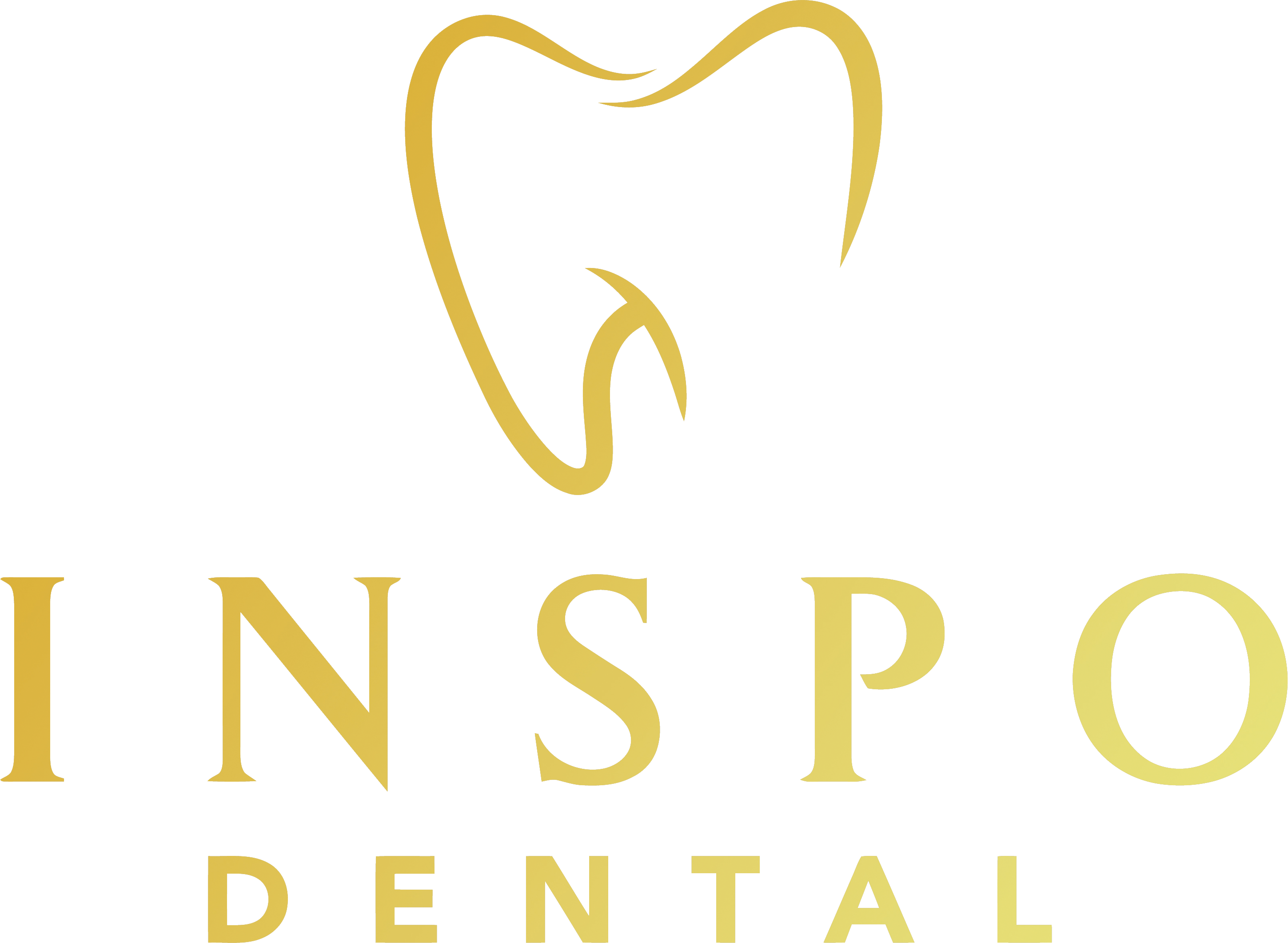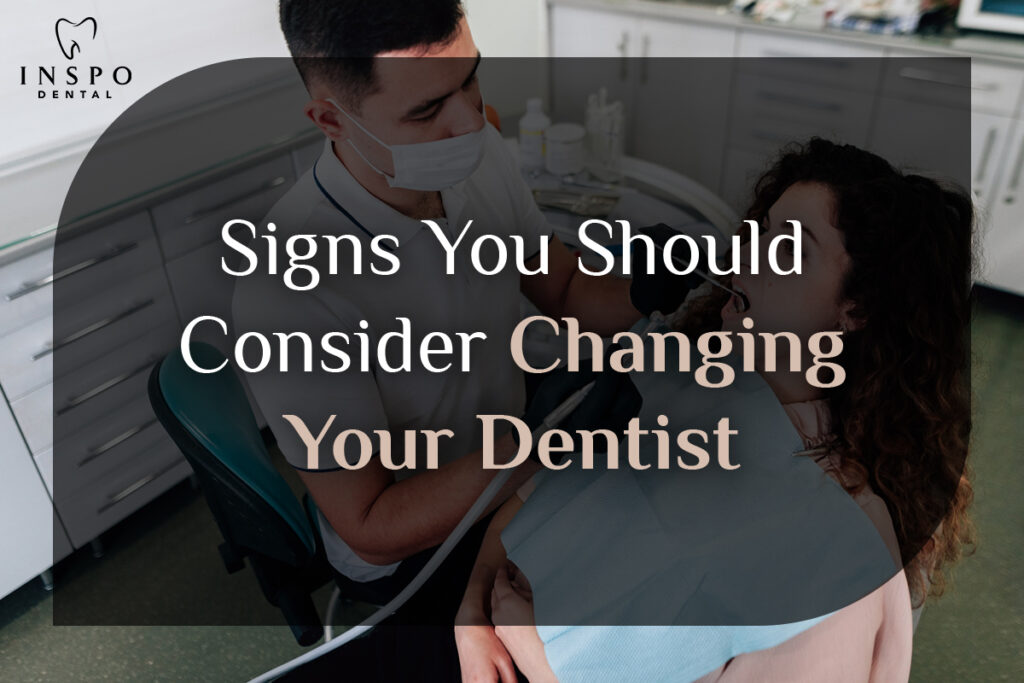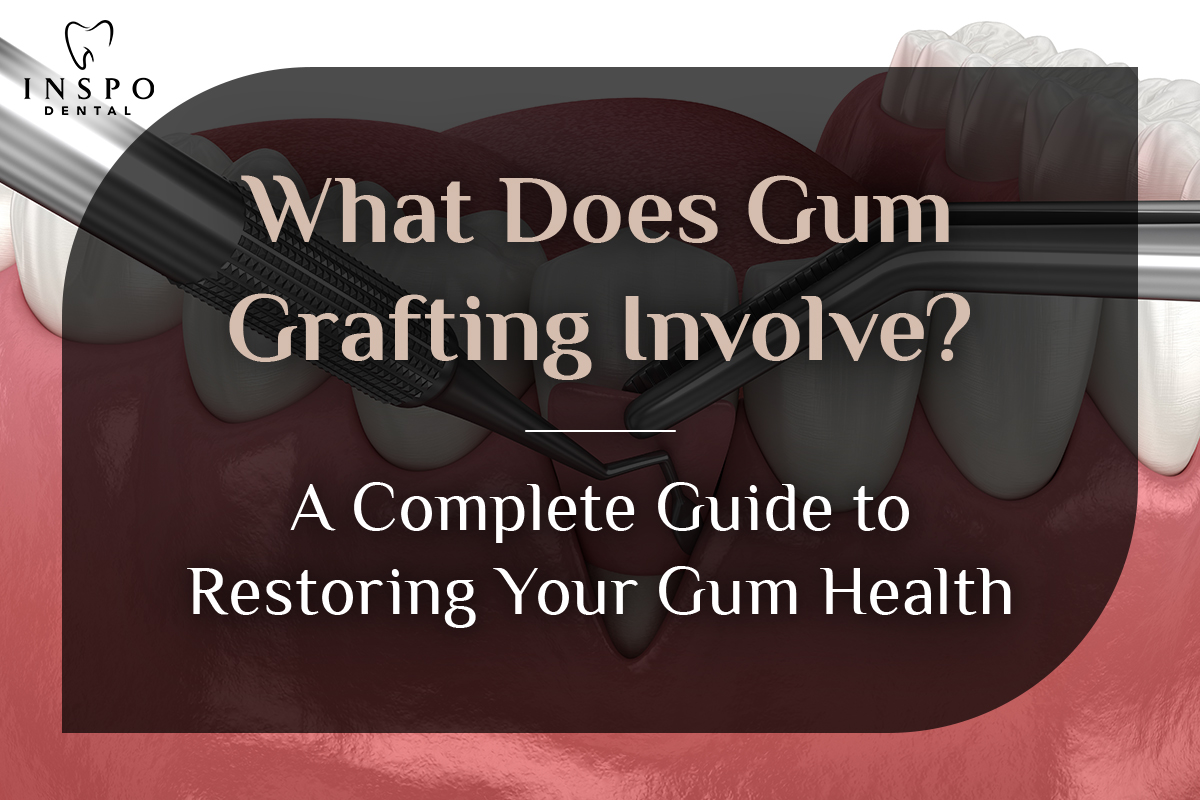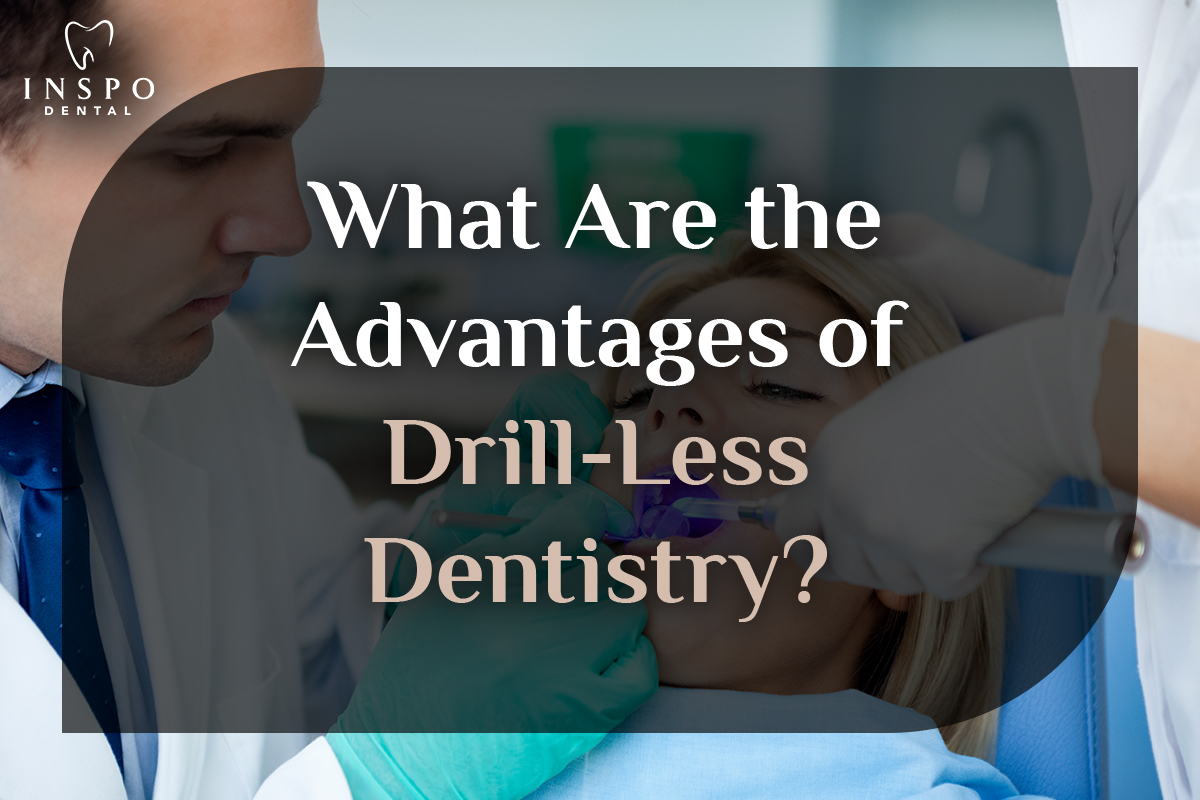Signs You Should Consider Changing Your Dentist
Choosing the right dentist is essential for maintaining your oral health and ensuring a positive dental care experience. If you’ve been feeling uneasy about your current dentist or wondering whether it’s time for a change, here are some key signs to watch for. Your comfort, trust, and health should always come first.
- Lack of Communication
What to Watch For:
- Your dentist doesn’t take the time to explain treatment options, procedures, or diagnoses.
- You feel rushed during appointments and don’t have the opportunity to ask questions.
- You’re unclear about the recommended care plan or why certain procedures are necessary.
Why It Matters:
Clear communication is the foundation of a good dentist-patient relationship. You should feel informed and confident about your oral health decisions.
- Outdated Technology and Techniques
What to Watch For:
- Your dentist uses older equipment or techniques that may not be as effective or comfortable as modern advancements.
- Lack of digital X-rays, intraoral cameras, or other technology that improves accuracy and efficiency.
Why It Matters:
Modern technology enhances the quality of care by improving diagnostic accuracy, reducing treatment times, and increasing patient comfort.
- Poor Office Hygiene or Disorganization
What to Watch For:
- The office appears unclean or disorganized.
- Dental tools or equipment seem improperly sterilized.
- Administrative processes, such as scheduling and billing, are chaotic.
Why It Matters:
A clean, well-organized office is essential for your safety and comfort. Disorganization can also signal a lack of professionalism or attention to detail.
- Unfriendly or Unprofessional Staff
What to Watch For:
- Staff members are dismissive, rude, or unhelpful when you have questions or concerns.
- The dental team doesn’t make an effort to create a welcoming or comfortable environment.
- Appointments are frequently rescheduled or delayed without explanation.
Why It Matters:
Your overall experience at the dentist’s office depends on more than just the dentist. A friendly and professional staff ensures a positive visit from start to finish.
- Painful or Poorly Performed Procedures
What to Watch For:
- Routine procedures, like cleanings or fillings, are consistently uncomfortable or painful.
- You’ve experienced recurring issues with work done by your dentist, such as broken fillings or poorly fitting crowns.
- Your concerns about discomfort aren’t addressed.
Why It Matters:
Dental visits should be as comfortable as possible, and procedures should be performed with skill and care. Consistently poor experiences may indicate a lack of expertise or attention to patient needs.
- Limited Services
What to Watch For:
- Your dentist doesn’t offer a wide range of services, requiring you to visit multiple providers for specialized care.
- Lack of cosmetic or advanced restorative treatments if you’re seeking to enhance or restore your smile.
Why It Matters:
A comprehensive dental practice saves you time and ensures continuity of care by offering a full range of services in one convenient location.
- Lack of Emphasis on Preventive Care
What to Watch For:
- Your dentist focuses solely on treating problems rather than preventing them.
- You aren’t provided with guidance on improving your at-home oral hygiene routine.
- Regular checkups feel rushed or incomplete.
Why It Matters:
Preventive care is critical for maintaining long-term oral health. A good dentist prioritizes prevention to help you avoid more extensive and costly treatments.
- Unclear Billing and Costs
What to Watch For:
- Unexpected charges or unclear explanations of billing practices.
- Difficulty understanding insurance coverage or out-of-pocket costs.
- A lack of transparency about treatment pricing upfront.
Why It Matters:
Financial transparency is an essential part of building trust. You should feel confident about the costs of treatment before agreeing to any procedures.
- You Feel Uncomfortable or Unheard
What to Watch For:
- You feel judged or dismissed when expressing concerns about your oral health.
- Your dentist doesn’t take your anxiety, preferences, or personal needs into consideration.
- You feel uneasy or stressed about visiting the office.
Why It Matters:
Your comfort and confidence in your dentist are essential. If you feel uncomfortable or unheard, it may be time to find someone who values your concerns and prioritizes your experience.
- Lack of Emergency Care Options
What to Watch For:
- Your dentist doesn’t offer emergency dental care or has limited availability for urgent needs.
- You struggle to get an appointment during a dental emergency.
Why It Matters:
Accidents and dental emergencies happen. A dentist who offers timely and reliable emergency care ensures you can get the help you need when it matters most.
- They Don’t Stay Updated with Continuing Education
What to Watch For:
- Your dentist doesn’t participate in continuing education or keep up with advancements in dental techniques and materials.
- They seem unaware of new treatment options or alternatives that may benefit you.
Why It Matters:
Dentistry is constantly evolving, and your dentist should stay informed about the latest research, technology, and techniques to provide the best care possible.
- Limited Availability or Scheduling Inconveniences
What to Watch For:
- Appointments are hard to schedule due to limited office hours or excessive wait times.
- The dentist’s availability doesn’t accommodate your busy schedule, such as evening or weekend appointments.
- Frequent cancellations or rescheduling by the office disrupt your dental care routine.
Why It Matters:
Accessible dental care is essential for maintaining oral health. A dentist with flexible hours and reliable scheduling ensures you can prioritize your dental visits without inconvenience.
- No Focus on Patient Education
What to Watch For:
- Your dentist doesn’t explain the connection between oral health and overall health.
- There’s little effort to educate you on preventative measures or at-home oral care.
- You leave appointments feeling uninformed about the condition of your teeth and gums.
Why It Matters:
Patient education is key to long-term oral health. A good dentist empowers you with knowledge, helping you make informed decisions about your care and take proactive steps to prevent future issues.
- Lack of a Welcoming Atmosphere
What to Watch For:
- The office feels cold, impersonal, or unwelcoming.
- You don’t feel comfortable asking questions or expressing concerns.
- Staff members seem disengaged or uninterested in creating a positive patient experience.
Why It Matters:
A welcoming environment is critical for building trust and ensuring a positive experience. You should feel relaxed and valued every time you visit your dentist.
- They Don’t Address Anxiety or Special Needs
What to Watch For:
- Your dentist doesn’t acknowledge or accommodate dental anxiety or phobias.
- They lack options like sedation dentistry or other comfort measures.
- The office isn’t equipped to handle patients with special needs, such as physical disabilities or sensory sensitivities.
Why It Matters:
Everyone deserves to feel safe and comfortable at the dentist. A practice that takes the time to address your unique needs ensures a better experience for all patients.
- Declining Trust or Confidence
What to Watch For:
- You doubt the quality of care or recommendations provided by your dentist.
- You suspect unnecessary treatments are being recommended for financial gain.
- Your dentist doesn’t prioritize your long-term oral health.
Why It Matters:
Trust is the foundation of a strong dentist-patient relationship. If you no longer feel confident in your dentist’s expertise or intentions, it’s time to find a provider who earns your trust.
- Infrequent Checkups and Follow-Ups
What to Watch For:
- Your dentist doesn’t schedule routine follow-ups to monitor ongoing issues or treatments.
- You’re not reminded of overdue cleanings or checkups.
- There’s little emphasis on regular, preventative care.
Why It Matters:
Proactive monitoring and follow-ups are essential for maintaining oral health and preventing small issues from becoming major problems.
- Outdated Office Design and Amenities
What to Watch For:
- The office is outdated, with old furniture, equipment, or décor that doesn’t promote a professional or relaxing atmosphere.
- There are no modern amenities like music, TV, or other distractions to make your visit more comfortable.
Why It Matters:
While appearance isn’t everything, a clean, updated, and patient-focused office can significantly improve your overall experience and reflect the practice’s commitment to quality care.
- Limited Payment Options
What to Watch For:
- The office doesn’t accept your insurance plan or fails to explain your coverage clearly.
- Payment options are rigid, with no flexibility for financing larger procedures.
- You feel financial pressure due to unclear billing practices or unexpected fees.
Why It Matters:
Affordable and transparent payment options are vital for ensuring you can access the dental care you need without financial strain.
- Frequent Staff Turnover
What to Watch For:
- You notice a high turnover rate among dental hygienists, assistants, or administrative staff.
- Constant changes in personnel make it hard to build rapport and consistency in your care.
Why It Matters:
High staff turnover can indicate underlying issues within the practice and may disrupt the quality and continuity of your care.
- Lack of Preventive and Wellness-Oriented Practices
What to Watch For:
- The dentist focuses on fixing problems rather than preventing them.
- There’s little attention to overall wellness and how oral health impacts your general health.
Why It Matters:
A dentist who emphasizes prevention and wellness helps you avoid costly, invasive procedures and promotes a healthier lifestyle.
- Minimal Focus on Patient Comfort
What to Watch For:
- Lack of options to make procedures more comfortable, such as ergonomic seating or sedation dentistry.
- No effort to address pain or discomfort during treatments.
- An environment that feels clinical rather than welcoming.
Why It Matters:
Your comfort should be a priority during every dental visit. A dentist who takes measures to ease anxiety and minimize discomfort demonstrates a commitment to your overall experience.
- Ignoring Your Dental Concerns
What to Watch For:
- Your dentist dismisses or downplays your questions, concerns, or preferences.
- You feel pressured into accepting treatments without a thorough explanation or second opinion.
- There’s no consideration of your personal goals for your smile, such as cosmetic improvements.
Why It Matters:
Your concerns and goals should be central to your care plan. A dentist who actively listens and collaborates with you fosters a trusting, respectful relationship.
- Overemphasis on Cosmetic Treatments
What to Watch For:
- Your dentist focuses primarily on selling cosmetic services without addressing underlying oral health issues.
- Preventative and restorative care seem secondary to aesthetic improvements.
- You feel pressured into cosmetic procedures that you’re not comfortable with.
Why It Matters:
While cosmetic dentistry is important, your oral health should always come first. A balanced approach ensures that functional and preventative care isn’t neglected in favor of appearances.
- Poor Follow-Up Care
What to Watch For:
- After major procedures, you don’t receive follow-up calls or appointments to check on your progress.
- Complications or discomfort after treatment are not adequately addressed.
- Your dentist doesn’t provide post-treatment care instructions or resources.
Why It Matters:
Effective follow-up care is crucial for successful outcomes. A dentist who prioritizes your well-being will monitor your recovery and address any issues promptly.
- Limited Availability of Emergency Services
What to Watch For:
- Your dentist is unavailable or unresponsive during dental emergencies.
- There’s no clear protocol for handling urgent situations outside of office hours.
- You’re referred to another provider for emergency care.
Why It Matters:
Dental emergencies can be stressful and painful. A reliable dentist with clear emergency protocols ensures you receive timely, effective care when you need it most.
- No Emphasis on Long-Term Health Goals
What to Watch For:
- Your dentist doesn’t discuss strategies to preserve your teeth and gums for life.
- There’s no guidance on how to prevent age-related oral health issues.
- Preventive measures, such as regular cleanings or fluoride treatments, aren’t prioritized.
Why It Matters:
A great dentist takes a proactive approach to your oral health, focusing on strategies to ensure long-term wellness and function.
- Lack of Community Involvement
What to Watch For:
- The practice doesn’t participate in local events, charitable efforts, or educational initiatives.
- There’s no visible commitment to giving back to the community or promoting oral health awareness.
Why It Matters:
A dentist who engages with the local community demonstrates a genuine investment in the well-being of their patients and neighbors.
- Feeling Uncomfortable During Appointments
What to Watch For:
- You feel uneasy or anxious every time you visit the office, even for routine checkups.
- The atmosphere doesn’t feel welcoming, or the staff doesn’t make an effort to put you at ease.
- Your dentist lacks a compassionate or empathetic approach.
Why It Matters:
Feeling comfortable and respected during dental visits is essential. If you consistently feel uneasy, it’s worth seeking a provider who prioritizes your emotional well-being as much as your oral health.
How to Transition to a New Dentist
If you’ve identified several signs that it’s time to switch dentists, here are steps to make the process as smooth as possible:
- Research Local Dentists
- Use online reviews, patient testimonials, and recommendations from friends or family to find a trusted provider in your area.
- Schedule a Consultation
- Meet with potential dentists to discuss your needs and evaluate their practice environment, services, and approach to care.
- Transfer Dental Records
- Request a copy of your dental records from your current dentist to ensure your new provider has access to your complete oral health history.
- Communicate Your Needs
- Be open with your new dentist about what you’re looking for in a provider, including your preferences, goals, and any past concerns.
- Evaluate Your Experience
- After your first appointment, reflect on whether the new dentist meets your expectations for communication, comfort, and quality of care.
Final Thoughts: Take Control of Your Oral Health
Your dentist plays a vital role in maintaining your oral and overall health, so finding the right provider is crucial. If your current dentist doesn’t meet your needs or make you feel valued, it’s worth exploring other options. A great dentist will not only deliver exceptional care but also build a trusting relationship that empowers you to prioritize your oral health confidently.
Ready for a Change?
Start your search for a dentist who aligns with your needs and values. Your smile deserves the best care possible—don’t settle for less!
